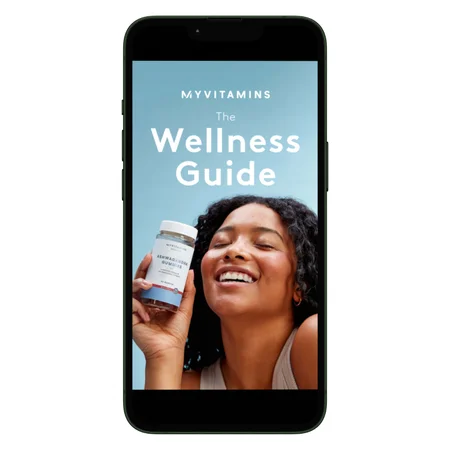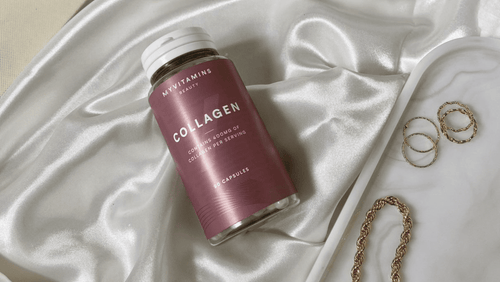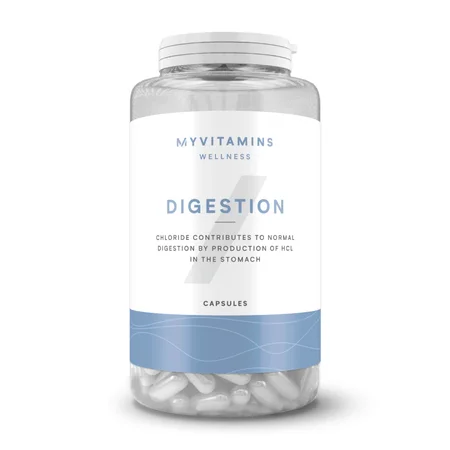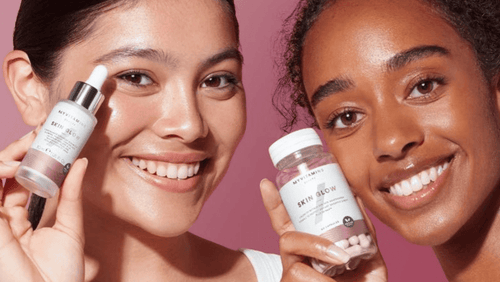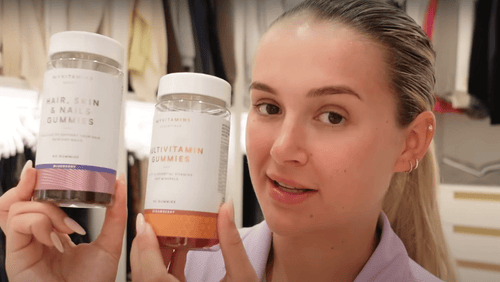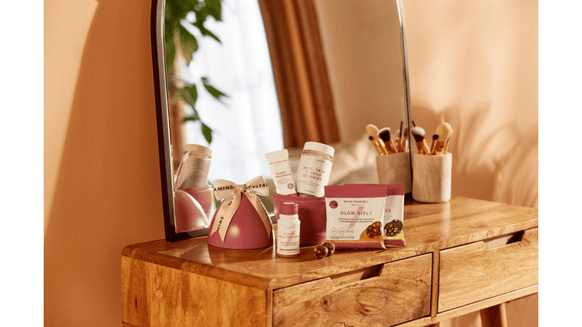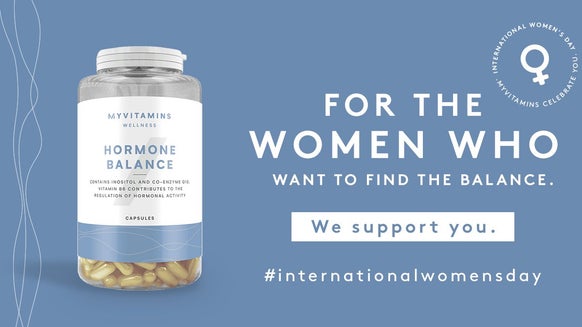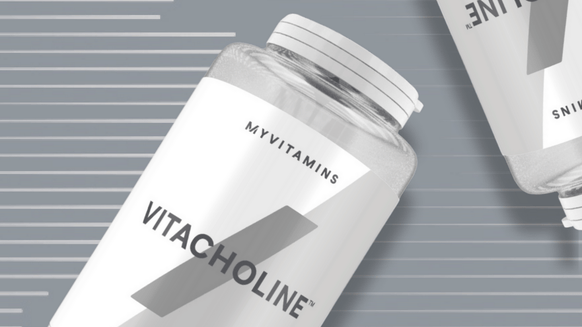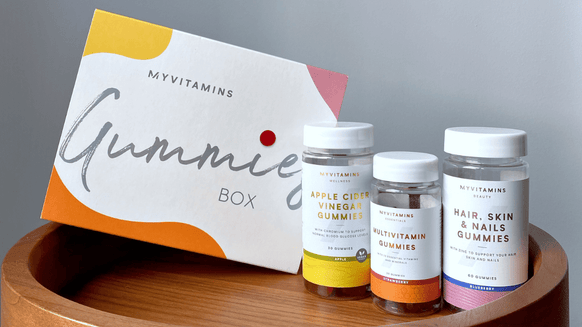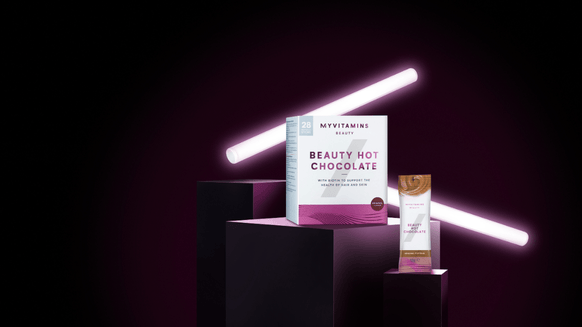Benefits Of Probiotics For Your Skin | Summer Skin School
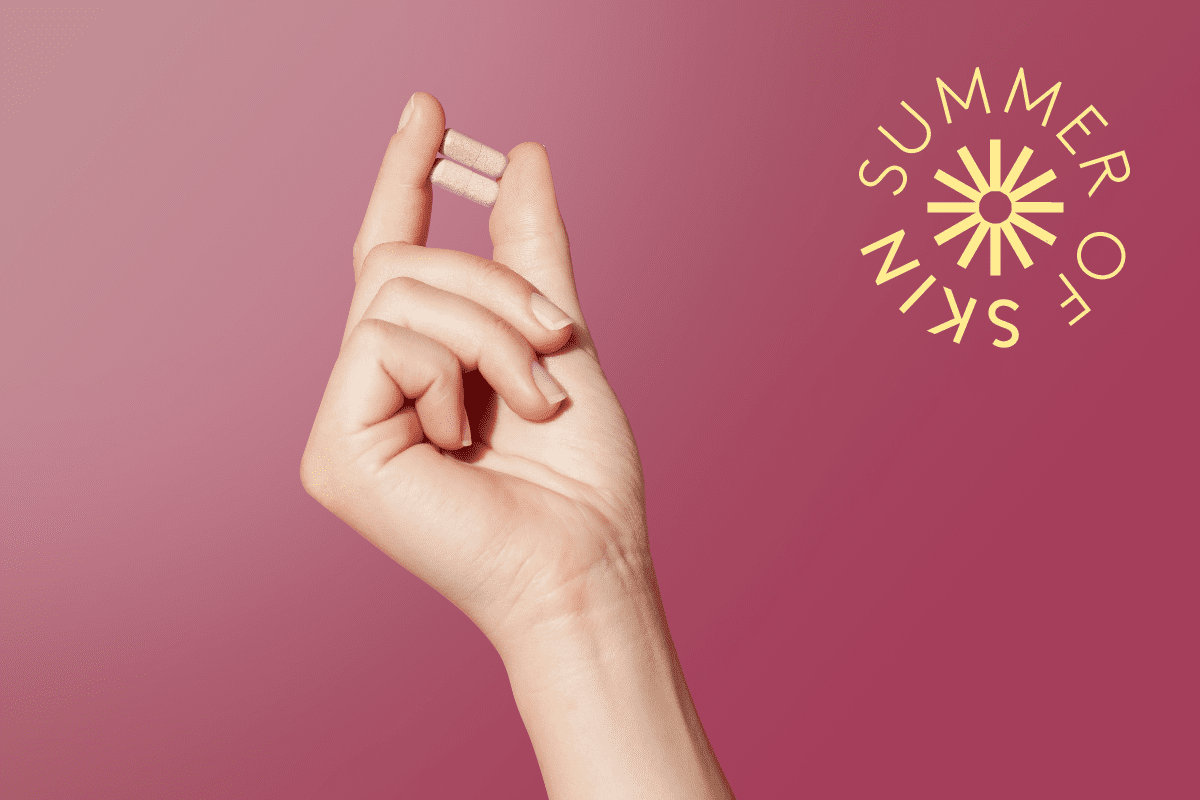
In the ever-evolving world of skincare, an emerging trend is shifting the focus inward, highlighting the benefits of probiotics on skin health.
Traditionally known for their gut health benefits, probiotics are quickly gaining popularity for their potential to tackle common skin concerns such as breakouts, eczema, and fine lines.
From reducing acne to improving overall complexion, these beneficial bacteria are proving to be a powerful supplement in the quest for glowing, healthy skin.
So let’s break down the science of probiotics and explore how the addition of the microscopic bacteria can level up your skincare routine.

- What are probiotics?
- Gut health and acne: The gut-skin axis
- Benefits of probiotics for skin
- Ways to use probiotics for skin
- FAQs
What are probiotics?
Probiotics are live bacteria and yeasts that are beneficial to the gut, contributing to a balanced and diverse microbiome. Often known as "good" or "helpful" bacteria because they work to increase the proportion of beneficial bacteria in your gut, probiotics are present in fermented foods or more readily available in supplement form and are best consumed as part of a varied diet.
Probiotics operate by balancing the microbiome, a complex community of microorganisms residing in the human body, including the skin. The skin’s microbiome is crucial for maintaining its barrier function, protecting against pathogens, and regulating immune responses.
When the microbiome is imbalanced, it can lead to various skin issues such as acne, eczema, and premature aging (1). A diverse microbiome is associated with many health benefits including improved skin, heart and brain health, weight management, and management of blood sugar levels and mood (2).
Gut health and acne: The gut-skin axis
The connection between the gut and skin, often referred to as the gut-skin axis, is gaining significant attention recently due to its ability to influence the human immune system and subsequent inflammation (2).
An imbalanced gut microbiome (also known as dysbiosis) can trigger an inflammatory response which disrupts the delicate balance, or homeostasis, of the gut-skin axis. This may manifest as skin conditions such as eczema, psoriasis, atopic dermatitis, and acne.
As a result, probiotics play a vital role in restoring balance in the gut and reducing inflammation.

Benefits of probiotics for skin
1. Reduce acne
Probiotics may help combat acne by balancing the skin's microbiome, reducing the presence of acne-causing bacteria, and diminishing inflammation. Strains such as Lactobacillus and Bifidobacterium have shown promise in reducing acne and improving complexion (10).

2. Strengthens skin barrier
A strong skin barrier is crucial for retaining moisture and protecting against environmental stressors. Probiotics help to reinforce this barrier, helping to keep the skin hydrated and resilient .
3. Support collagen production
Probiotics can combat signs of aging by stimulating collagen production, enhancing skin elasticity, and reducing the appearance of fine lines and wrinkles.
4. Improve some skin conditions
Chronic skin conditions like eczema and psoriasis can benefit from probiotics. These beneficial bacteria help modulate the immune response, reducing inflammation and alleviating symptoms such as itching and redness (3).
5. Brighter complexion
By promoting a balanced microbiome, probiotics can lead to a more even skin tone and a brighter complexion, reduce hyperpigmentation and improve overall skin radiance (4).

Ways to use probiotics for skin
Incorporating probiotics into your current routine doesn’t have to be complicated, with both dietary and topical options available to supercharge your skincare:
1. Food and drinks
Consuming a diet containing fermented probiotic-rich foods such as yogurt, kefir, sauerkraut, kimchi, miso, and kombucha can enhance both your gut and skin health, providing a natural and effective way to support a balanced microbiome .
2. Probiotic supplements
For those who may not have easy access to fermented foods, probiotic supplements are a convenient alternative.
These supplements come in various forms, including gummies, capsules, tablets, and powders, and can provide a concentrated dose of beneficial bacteria.
3. Topical skincare
Skincare products infused with probiotics, such as creams, serums, and masks, allow for direct application to the skin.
These products work to help balance the skin’s microbiome, reduce inflammation, and improve hydration and texture.
Talk to your doctor
Myvitamins are not making any medical claims in this article. Before taking supplements, including probiotics, talk to your doctor or other relevant medical professional. If you have any concerns about skin health and acne, consult a dermatologist.
Take home message
Probiotics are beneficial bacteria that help to maintain the delicate balance between good and bad bacteria residing in your gut, boosting your immune system and reducing inflammation.
When consumed as part of a balanced diet, supplementing with probiotics may enhance skin health by improving hydration, reducing the appearance of acne and fine lines, and reinforcing the skin barrier for healthier, glowing skin from within.
Ready to learn more?
Check out the rest of our Summer Skin School series and other expert articles on all things beauty.
FAQs
Does poor gut health cause acne?
Have you noticed your skin has started breaking out when you eat certain foods? This may be due to an imbalance of bacteria in your gut. Frequent consumption of processed foods such as those high in refined sugar or saturated fat can alter the gut microbiome and increase systemic inflammation, contributing to skin issues including acne, rosacea, eczema, and psoriasis .
In addition to increased inflammation, dysbiosis of gut microbiota is associated with ‘leaky gut syndrome’, a condition linked to acne and eczema which occurs when the intestinal wall is weakened, allowing transportation of bacteria and toxins throughout the body (9).
What do probiotics do for your skin?
Probiotics help your skin by balancing the microbiome, reducing inflammation, and strengthening the skin barrier (3). These beneficial bacteria also enhance hydration, boost collagen production, and protect against environmental damage, resulting in improved skin texture and reduced signs of aging.
Overall, probiotics help to promote a healthier, more radiant complexion by ensuring your skin’s microbiome is balanced and functioning effectively.
Can gut probiotics help with acne?
By restoring balance to the gut microbiome, probiotics reduce systemic inflammation, a key factor in acne development. They help regulate immune responses and decrease the presence of acne-causing bacteria .
Probiotics like Lactobacillus and Bifidobacterium are particularly effective in reducing acne and preventing future breakouts. By promoting a healthy gut, probiotics indirectly support clearer, healthier skin.
Which probiotic is best for skin?
The best probiotics for skin health are strains that specifically target the skin’s microbiome and reduce inflammation. Lactobacillus acidophilus and Bifidobacterium bifidum are well-regarded for their ability to improve skin clarity and reduce acne .
Lactobacillus rhamnosus has also shown effectiveness in alleviating eczema symptoms . When choosing probiotics, look for products with these strains and ensure they contain live cultures for maximum benefit.
Megan Wilson is a certified Personal Trainer and Registered Associate Nutritionist with a Bachelor’s of Science in Nutrition. Megan is currently working towards her PhD which focuses on the post-meal effects of meal macronutrient composition on cardiovascular and metabolic health.
Her experience stems from working in the private health sector as a personal trainer and coach, to conducting scientific research into the post-meal effects of low-carbohydrate, high-fat meal consumption, which she has presented at the annual Nutrition Society Conference.
Outside of academia, Megan loves hitting the gym, trying new foods, and spending time with friends.
